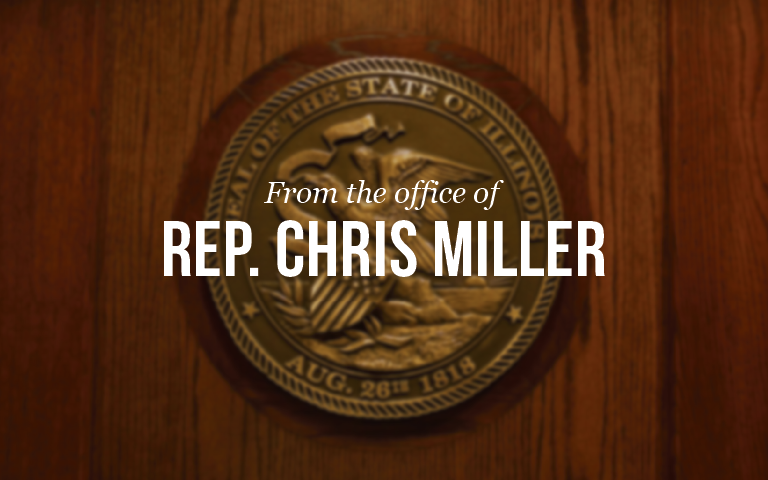Reimagine Illinois and The People’s Independent Maps Act
This week, my fellow Republicans in the House and Senate Introduce the People’s Independent Maps Act. Senate Republican Leader Dan McConchie, House Republican Leader Jim Durkin, Senate Republican Caucus Chair Jason Barickman, and House Assistant Minority Leader Tim Butler introduced the People’s Independent Maps Act to allow Illinois legislative redistricting maps to be created by an independent commission, rather than politicians.
The People’s Independent Maps Act (Senate Bill 1325), uses identical language from SJRCA 0004, a constitutional amendment for an independent redistricting commission introduced in 2019. That resolution garnered 37 co-sponsors in the Senate including 18 Democrats. A similar independent commission amendment co-sponsored by Speaker of the House Chris Welch passed the House in 2016 with 105 YES votes.
Current Illinois law allows legislators to draw and approve a map by June 30. This legislation would allow legislators to recuse themselves from the map process all together.
The People’s Independent Maps Act allows the following:
• Gives the Supreme Court the power to appoint sixteen independent, citizen commissioners to the Independent Redistricting Commission within 30 days of becoming law.
• The makeup of the Commission would be required to reflect the ethnic, gender, and racial demographics of the state.
• Party affiliation would be evenly split in addition to members without party affiliation.
• Legislators, state employees, and lobbyists are prohibited from serving on the commission.
• The Commission would be required to hold at least 10 public hearings throughout the state before adopting a plan, with at least four hearings after a map is proposed.
• The commission will release a map within 30 days of receipt of the census redistricting data.
• This legislation would only apply to the 2021 redistricting cycle.
Public polling has shown more than 75 percent of Illinois voters support an independent process that puts citizens in control of drawing election districts instead of the politicians.
Illinois House Republicans, in alliance with nonpartisan entities such as the Better Government Association, are calling for a Fair Map system for Illinois as an essential element of our Reimagine Illinois platform.
Illinois’ Unpaid Bills Backlog Projected to Worsen
A continuously updated tally published online by the Office of the Comptroller indicates that the State currently has 48,128 backlogged vouchers, better described as unpaid bills in past-due status. These backlogged vouchers represented, at the end of March 2021, more than $4.7 billion in unpaid State bills.
This week, the Commission on Government Forecasting and Accountability (CGFA) published their latest “Three-Year Budget Forecast”. The report anticipates that during this period the ongoing trend of State expenditures, based upon existing programs, exceeding State revenues can be expected to continue and worsen. This could lead to a backlog of bills between $10 billion and $20 billion. We need to get this under control. I will continue to fight excessive spending in Illinois.
Lake Land College Receives $1.7 Million for Parking Lot Renovation
The Illinois Capital Development Board announced Wednesday $1.7 million has been released for the improvements to the parking lot at Lake Land College from the state, with local matching funds supporting a total investment of $2.3 million.
This announcement of capital funding for maintenance at Lake Land College is the type of investment Illinois has been needing to make for too long. Community colleges build the foundation of higher education throughout much of the state, and this particular project will positively impact the first impressions of prospective staff and students at Lake Land.
If you would like to contact my office with questions and concerns or would like me to speak at events, please reach out by visiting my website, Facebook, or by calling 618-546-0044.
Get the Week in Review emailed directly to your inbox! Sign up today to get a first-hand look at the continuing legislative and fiscal challenges facing policymakers in Springfield.
